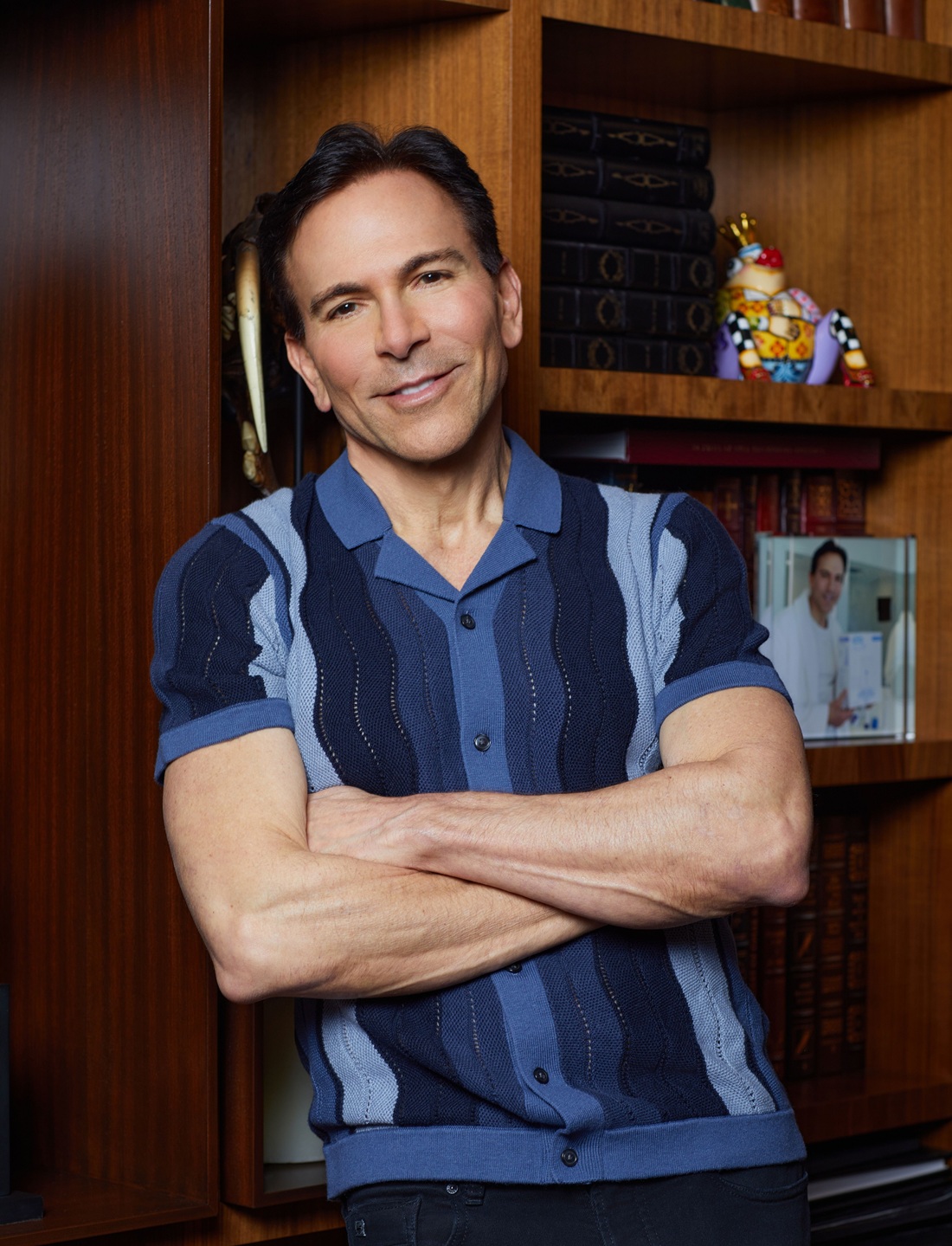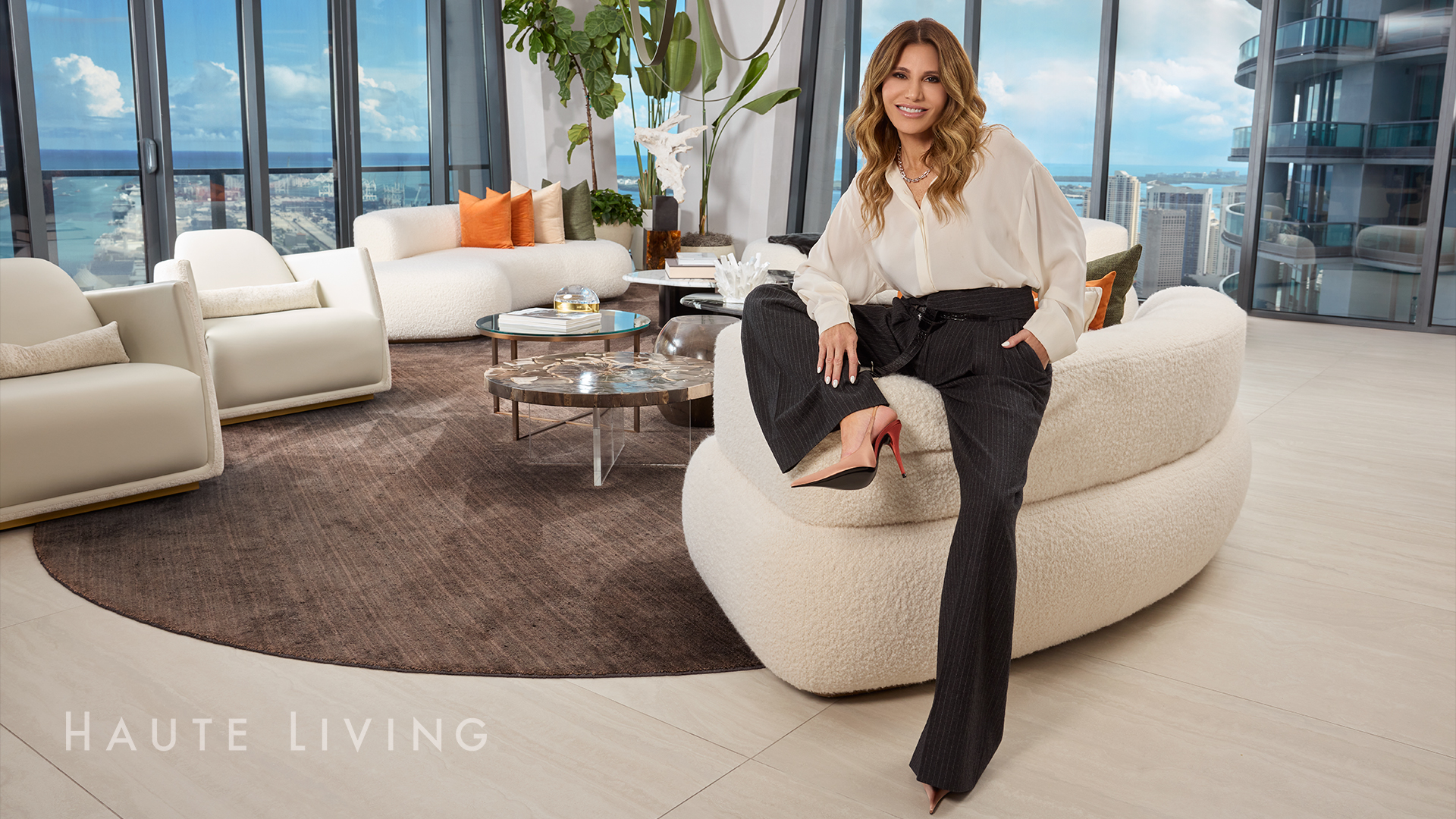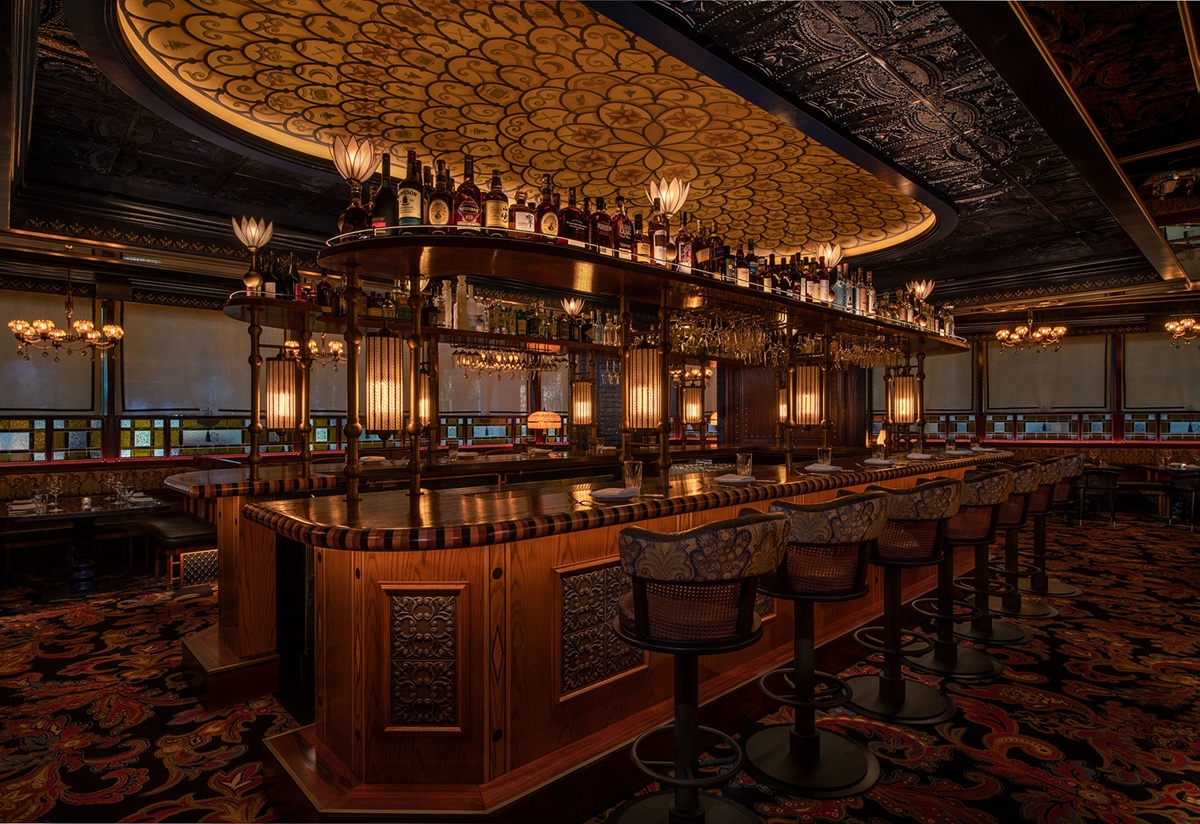CEO Of Goldman Properties Jessica Goldman Srebnick Shares Advice On Pivoting Business To A ‘New Normal’
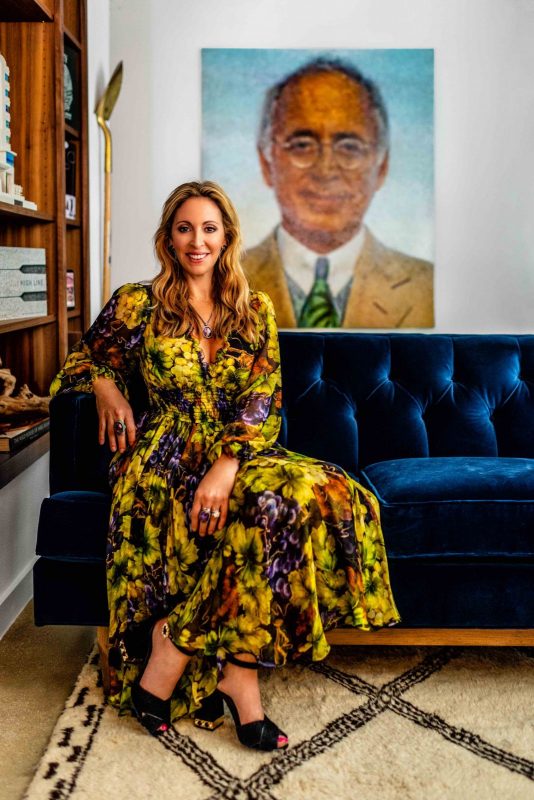 Photo Credit: Nick GarciaJessica Goldman Srebnick has never been one to shy away from a challenge. The Haute 100-lister serves as CEO of Goldman Properties—a second-generation leader of the powerhouse company founded by her late father and visionary real estate developer, Tony Goldman. Goldman Srebnick can be credited with the massive reinvention of one of Miami’s most hip and popular neighborhoods—Wynwood—by utilizing the Wynwood Walls platform and Goldman Global Arts (GGA), an art curation and production company she co-founded, as agents of change to bring rich culture to the neighborhood through its famous street art. She’s also credited with an impressive portfolio spanning throughout Miami and New York, as well as overseeing restaurants, office buildings, a boutique hotel, commercial and real estate projects and so much more. She has brought some of the world’s greatest artists to her projects, such as Shepard Fairey and Vhils, amongst many others.
Photo Credit: Nick GarciaJessica Goldman Srebnick has never been one to shy away from a challenge. The Haute 100-lister serves as CEO of Goldman Properties—a second-generation leader of the powerhouse company founded by her late father and visionary real estate developer, Tony Goldman. Goldman Srebnick can be credited with the massive reinvention of one of Miami’s most hip and popular neighborhoods—Wynwood—by utilizing the Wynwood Walls platform and Goldman Global Arts (GGA), an art curation and production company she co-founded, as agents of change to bring rich culture to the neighborhood through its famous street art. She’s also credited with an impressive portfolio spanning throughout Miami and New York, as well as overseeing restaurants, office buildings, a boutique hotel, commercial and real estate projects and so much more. She has brought some of the world’s greatest artists to her projects, such as Shepard Fairey and Vhils, amongst many others.
Here, we chat with the ever-inspiring CEO to chat about adjusting to a ‘new normal’ in our current world, how she is pivoting her multiple businesses to adjust and her best piece of advice for those who find themselves struggling right now.
HL: How have the past few months been for you?
JGS: The uncertainty of things has created a lot of anxiety for a lot of people. I’m an incredibly optimistic person, but in the beginning, I found it hard to have stay positive during this crisis. As time has gone on, we’ve started to realize the blessings we have. From a business standpoint, we’ve shifted, re-prioritized, restructured and have started thinking about the future and the direction we want to take and make those decisions to plan for the next 10-20 years. There has been a lot of reflection during this time.
HL: What have been some of the challenges? And the positive aspects?
JGS: One of the challenges of quarantine is the lack of socializing and lack of connection, but the one positive is that you connect deeper with the people that you’re quarantined with. However, a screen does not take the place of human interaction, eye contact, touch—that is a really interesting challenge, and one that I think is going to continue for some time. How we connect through a screen is going to be really interesting. Managing our teams as we work remotely is going to be a priority, how you connect, sustain momentum, and how you analyze productivity when people are working remotely. That will also change the office environment. It’s a wonderful thing for people to appreciate things that were the normal part of life before.
It’s important for people to develop and improve themselves for the future as it relates to the workforce. It is going to be incredibly necessary in order to thrive remotely in this technologically-advanced future. It’s important for people to be independent in their work process, be organized and disciplined. Those are characteristics and skillsets you need to thrive in a remote working world.
HL: What has it been like to be a CEO leading so many people and businesses during this time?
JGS: In the last four months, it’s given me an opportunity to self-reflect. Reflect on who I am as a leader and what my skill sets are; reflect on my company—where we are and where we want to be. There is always opportunity in adversity. As a company, we’ve always been very purposeful and always tried to do our part to make the world better. When you’re in a moment of crisis, we need to figure out how you can do all of this and make a positive impact in some way. A lot of times when things feel unsettled and unsure, it’s easy to crawl into a hole and hope that things ride themselves out, but that is not when businesses thrive. Businesses thrive when they take an offensive stance versus a defensive stance. Businesses thrive for the future when they explore opportunities and take risks. In this experience, I’ve learned to trust my instincts and move quickly and effectively. There’s no time for analysis paralysis—there are so many fires to put out that you have to just plow through one by one and make your decisions quickly and move forward. The challenge is always figuring out how, when you’re in survival mode, you stay in survival mode while also doing it in an empathetic way. Because you have to make some really hard decisions that are very painful. You have to do things for the survival of the business. You know what you’re made of when you go through the most challenging of times—that’s when you grow and that’s when you really thrive.
It’s all about reimagining—whether it’s where people live, what careers they’re in, what businesses will be viable in the future and what you want to spend your time and effort and dollars in driving. In some ways, it’s the universe telling us to stop and reevaluate and now we move forward with responsible leadership. Being responsible is not just government—it’s every single individual that lives in this country, that lives on this planet. You can use this time to better yourself and come out stronger than when you went into this—personally and professionally. We are in control of our own time now—how we use that time should be used for improvement and not wasted.
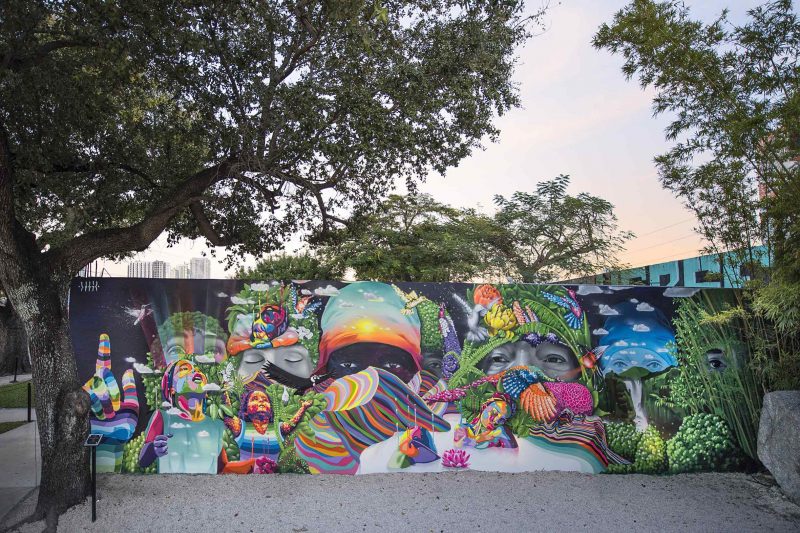
Photo Credit: Nika Kramer
HL: Tell us about the real estate industry—what changes have you seen, and how will this affect the industry’s future?
JGS: It’s pretty extraordinary—the fact that everything has been hit all at once and that everything is so incredibly interconnected. There are businesses that you’d never imagine would be thriving. And there are others like the hospitality industry that are hurting so deeply. The secondary rental home market is thriving because people are more comfortable driving to a destination and staying in a house versus staying in a hotel. The office/retail market was facing challenges prior to COVID-19 and this has just accentuated those challenges. It has forced people to make a change fast and adjust to digital platforms and pivot.
The real estate industry that deals with tenants has been tough. Real estate developers will have to rethink their real estate and what they use it for. There will be an adjustment to value in real estate portfolios. Leases will be more short term than long term. There will be this challenge as to who bears the brunt of the risk when there is a pandemic. Everything is incredibly interconnected.
We’re going to see the effects of this for the next two years and possibly longer. Cash flow and debt levels are all going to dictate how well you can survive this Tsunami. It’s an economic tsunami, a health tsunami. We’re trying to stay afloat, keep our heads above water and power ahead in the aftermath of this pandemic. When you are resourceful and hardworking, you can manage your way out of anything. With hard work, resourcefulness and dedication, you’ll always be okay. That’s where the hope comes from. The ways of the past are going to change. We have to be patient and we have to be resilient, hopeful and respectful. Great leaders are ones that are curious, listen and thrive to learn. This is going to be one of the greatest lessons in history.
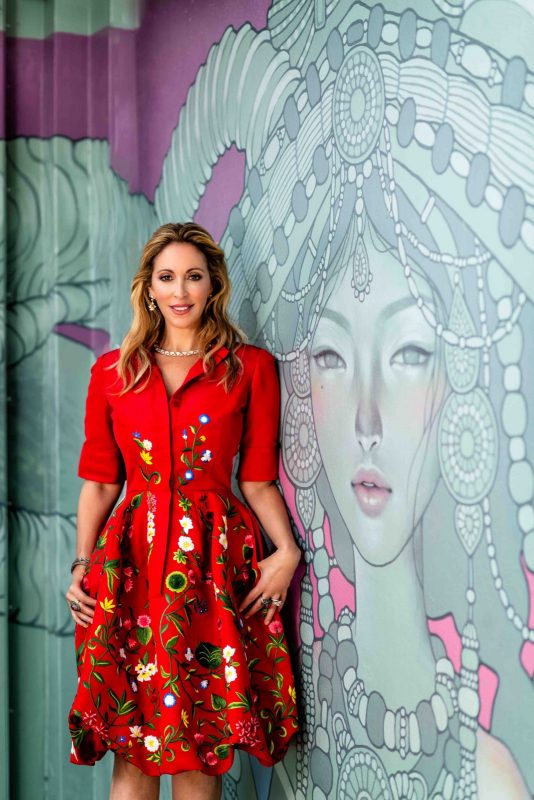 Photo Credit: Nick Garcia
Photo Credit: Nick Garcia
HL: Can you also speak about the effects of public art and the business behind it?
JGS: Like everything, public art shut down for a bit. People weren’t spending the way they were before and people had to evaluate their expenses. Art is such an important component of life. It is how we express ourselves, how we view the world, and what you’re going to see moving forward is a deep appreciation for the value of art. In the last couple of weeks of social discussion, you’ve seen that people express themselves through art—on signs, with words, with photography—imagery and creativity speak to who we are. It helps us express who we are and differentiate who we are. Because of this, we’re going to see a lot of changes—in the Wynwood Walls, for example—how art communicates the hopes and dreams of the planet.
Pre-COVID-19, there was a deep appreciation in the real estate world for the value of art to real estate and business, and the customer has come to expect creativity in their environments, whether it’s where they work, play or live—and that hasn’t changed. We’ve become reflective in what’s important to us, and more than ever, art will remain a very important component in how we live. Everything is going to take time to bounce back and it will bounce back in a different way.
HL: Can you share some words of advice to entrepreneurs who may be struggling right now with the challenges that lie ahead?
JGS: Be helpful, be hopeful and work hard. It’s more important than ever to care about the quality of your work product, to participate and to be enthusiastic and positive, no matter what the circumstance—your work product represents who you are. Have pride in who you are and make a difference in the world. In the most challenging of times is when we really learn who we are and we can become our best selves.





